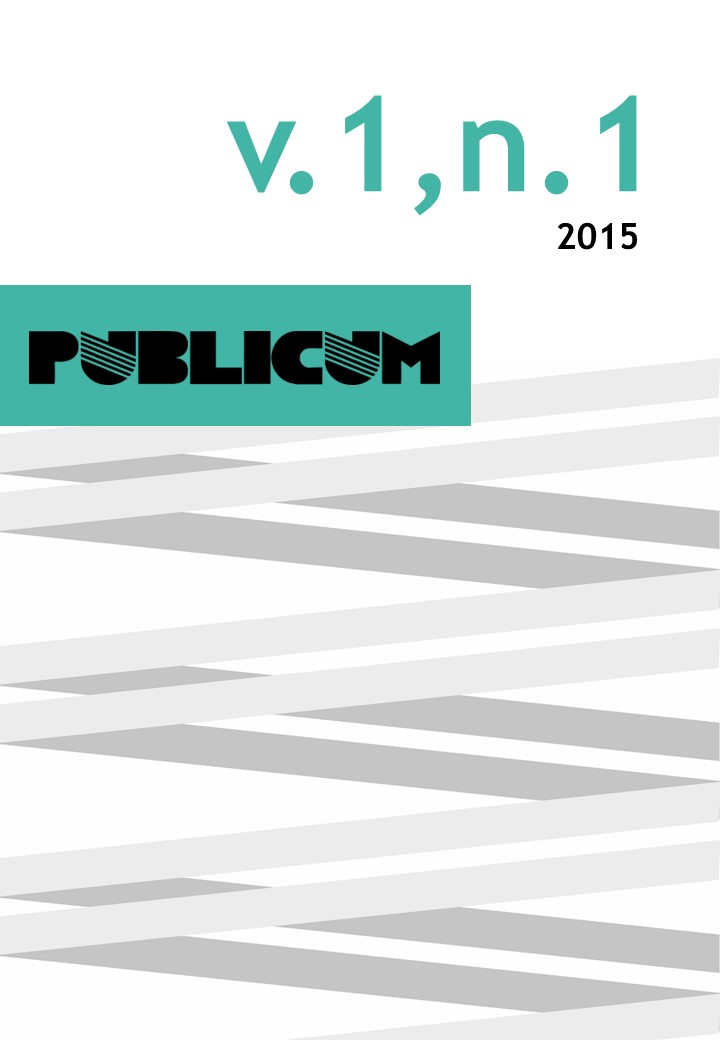Três caminhos para o constitucionalismo – e a crise da União Europeia
DOI:
https://doi.org/10.12957/publicum.2015.20216Palavras-chave:
Constitucionalismo, Revolução, Reforma, Construções de eliteResumo
Há três caminhos para o constitucionalismo no mundo moderno. No primeiro, outsiders*** revolucionários usam a constituição para veicular o compromisso do seu novo regime com os princípios proclamados na sua luta anterior. Índia, África do Sul, Itália e França seguiram essa linha. No segundo, insiders do establishment se valem da constituição para fazer concessões estratégicas, com o objetivo de enfraquecer movimentos revolucionários antes que ganhem poder. O Reino Unido fornece exemplos paradigmáticos disso. No terceiro, cidadãos comuns continuam passivos, enquanto elites políticas e sociais erigem uma nova constituição. Espanha, Japão e Alemanha oferecem variações desse mesmo tema. Diferentes caminhos geram diferentes problemas de legitimação, mas a União Europeia (UE) enfrenta uma dificuldade especial. Como seus membros emergem de três rotas divergentes, eles discordam quanto à natureza do problema constitucional da União, e não apenas quanto à sua solução. Dessa forma, a UE enfrenta uma crise cultural, e não meramente econômica.
*** Nota do Tradutor (doravante, NT): Por falta de expressões equivalentes em português, optou-se por preservar os termos insider(s) e outsider(s), na tentativa de manter o máximo de fidelidade ao original. Como empregados pelo autor, os termos se referem, respectivamente, a pessoa(s) que integra(m) e não integra(m) a elite e/ou que move(m) as instituições de um país. A mesma razão – aliada ao uso corrente na academia e no discurso político – justificou a manutenção do termo establishment, que designa, de forma ampla (e, por vezes, pejorativa ou crítica), não apenas a elite, política, econômica e cultural de determinado país, mas também as instituições sociais que ela controla.
Downloads
Publicado
Como Citar
Edição
Seção
Licença
O autor do trabalho declara conhecer e concordar com as regras a seguir:
1) Realizou o trabalho apresentado à revista, sendo inteiramente responsável pelas ideias e conceitos nele emitidos, que não correspondem, necessariamente, ao ponto de vista dos Editores de Publicum.
2) Obedeceu, na realização do trabalho, os princípios éticos aludidos na política de avaliação da revista[RDN1] .
3) Assume a autoria e a responsabilidade pela obra, declarando que ela não infringe quaisquer direitos de propriedade intelectual de terceiros.
4) Responsabiliza-se, integralmente, por danos de natureza moral ou patrimonial que a veiculação da obra venha a gerar a terceiros.
5) Cede à revista os direitos de reprodução, edição e primeira publicação do trabalho em qualquer meio midiático, em particular sob forma digital, em arquivo eletrônico online na internet.
6) Confere aos Editores o direito de modificar o texto apresentado, sem prejuízo de seu conteúdo, quando necessário para uniformizar a apresentação dos trabalhos e para atender as normas de edição próprias da revista.
7) Concorda com a forma final do trabalho aprovada pela revista.
8) Autoriza a divulgação do trabalho nos canais de comunicação da Faculdade de Direito da UERJ.
9) Concorda com a reprodução de pequenos trechos do trabalho em outras publicações da UERJ.
10) Reconhece que, pela cessão e autorizações acima referidas, não receberá remuneração sob qualquer modalidade, tendo estas o caráter de colaboração científica.
11) Tem ciência de que a publicação do trabalho poderá ser recusada caso não considerada conveniente, por qualquer motivo que seja, sendo que tal recusa não gera responsabilidade e/ou ônus de espécie alguma à revista ou UERJ.
[RDN1]Ver COPE.

Publicum está licenciado com uma Licença Creative Commons Atribuição-NãoComercial 4.0 Internacional.

